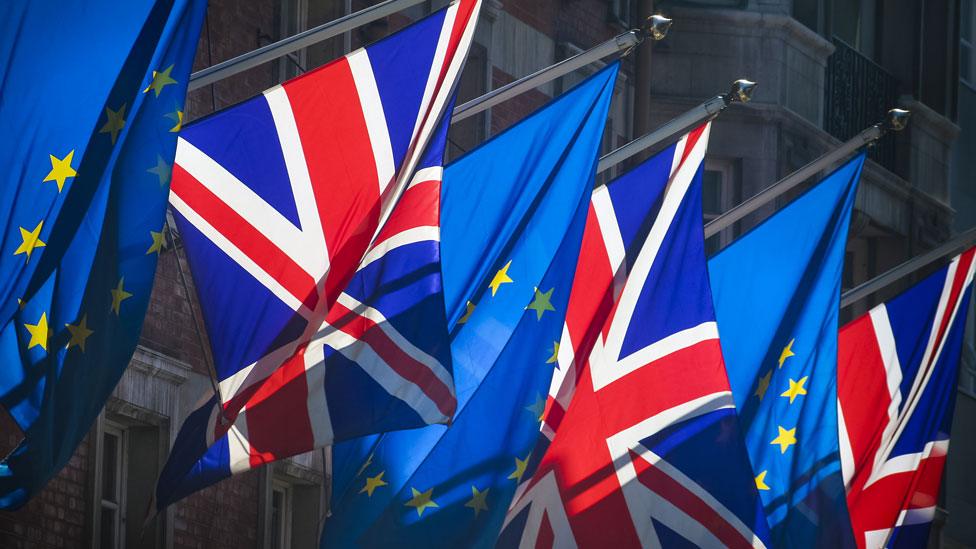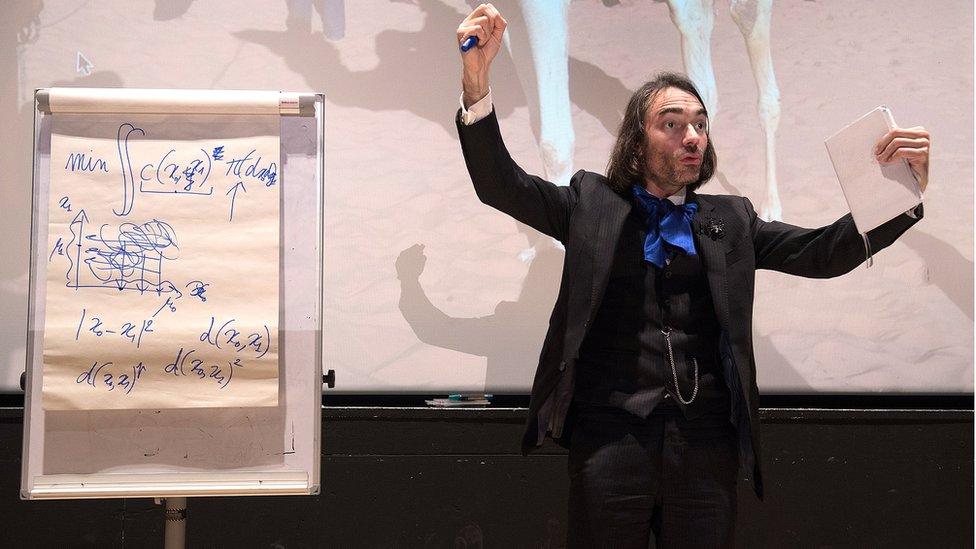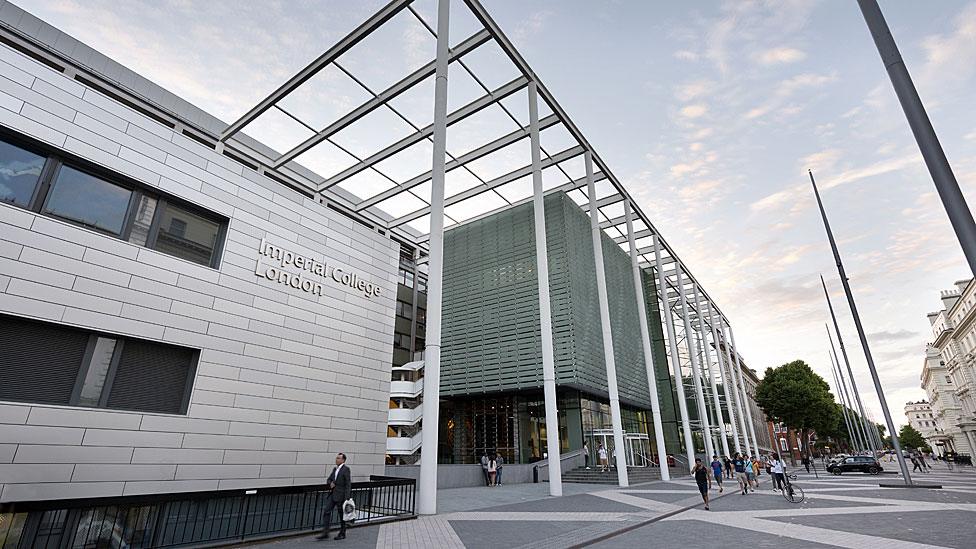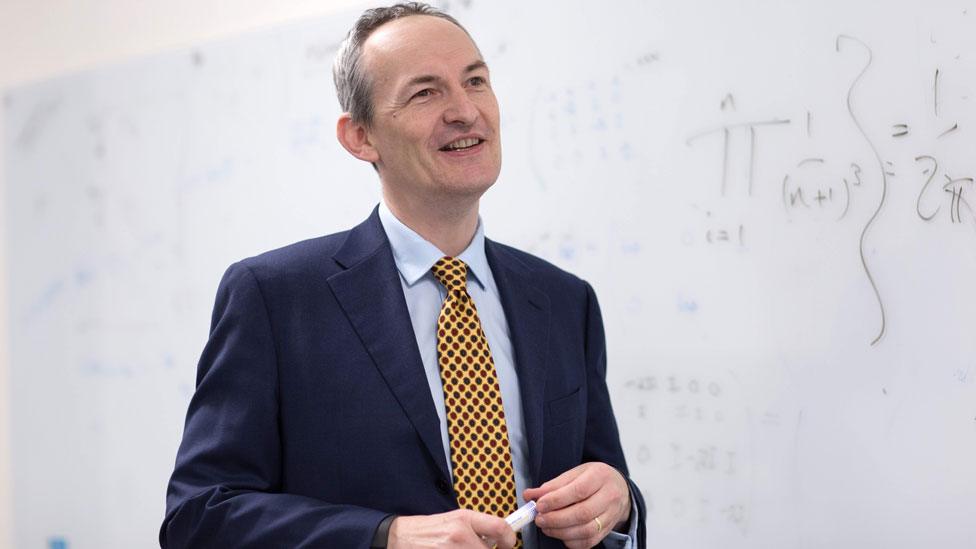UK university could access European funds post-Brexit
- Published

There have been concerns from UK universities about losing access to European research projects
A leading UK university has launched a close partnership with a top French research agency, in a relationship that could continue to provide UK academics with access to European research funding after Brexit.
Imperial College London, one of the world's top science institutes, has created a joint maths laboratory in London with the biggest government research body in France, the National Centre for Scientific Research (CNRS).
It means that Imperial's researchers, or those from other UK institutions working at the Unite Mixte Internationale (UMI) Abraham de Moivre, will have the same funding status as those in France, even after the UK's withdrawal from the EU.
"All members of the UMI, whatever their nationality, will have equal access to funding, resources and most importantly, opportunities for collaboration," said an Imperial spokesman.

Professor Cédric Villani, mathematician and French parliamentarian, helped to launch the laboratory with a maths lesson
"This could include Imperial or other researchers seconded as members of the UMI Abraham de Moivre."
This is the first time that the French government has co-funded such a research unit in the UK - and from the French perspective, this new centre in London will have the same status as a laboratory in France.
The Anglo-French maths centre was planned before the referendum, but it will provide a model of co-operation and a shared approach to funding which will stretch beyond the UK's exit from the EU.
UMI director Richard Craster, professor of applied mathematics at Imperial, said the project showed a commitment to "strengthening our ties with Europe by improving mobility and giving new opportunities for researchers to exchange ideas".
Named after an 18th-Century French mathematician who worked in London, the laboratory has the aim of "bringing together some of the world's best mathematicians".
The French ambassador said it would "provide a window to reach out to the UK mathematical community at large".

The new maths laboratory will be at Imperial's base in south Kensington in London
Imperial College says work at the laboratory will advance knowledge in "number theory, mathematical analysis, biomathematics and financial mathematics".
Imperial, ranked eighth in the QS World University Rankings, already has more than 200 French staff and almost 700 French students at its south Kensington base.
President Prof Alice Gast said the new project "reinforces Imperial's exceptionally strong academic ties with France, as well as our determination to deepen collaborations with European partners".
In the wake of the EU referendum result, she had promised to "vigorously defend our international values" and said that "political changes" would not restrict the college's research work.

Prof Richard Craster will be the first director of the joint French and UK maths research centre
"Imperial is and will remain a European university," she had told staff and students.
The UK's universities have been among the biggest net beneficiaries of EU research funding.
But there have been concerns about the loss of access to whatever scheme follows the current Horizon 2020, which has provided 80bn euro (£71bn) in research funding.
There have also been warnings from UK universities about their academics missing out on international projects commissioned through European research frameworks.

More from Global education
Ideas for the Global education series? Get in touch with sean.coughlan@bbc.co.uk
